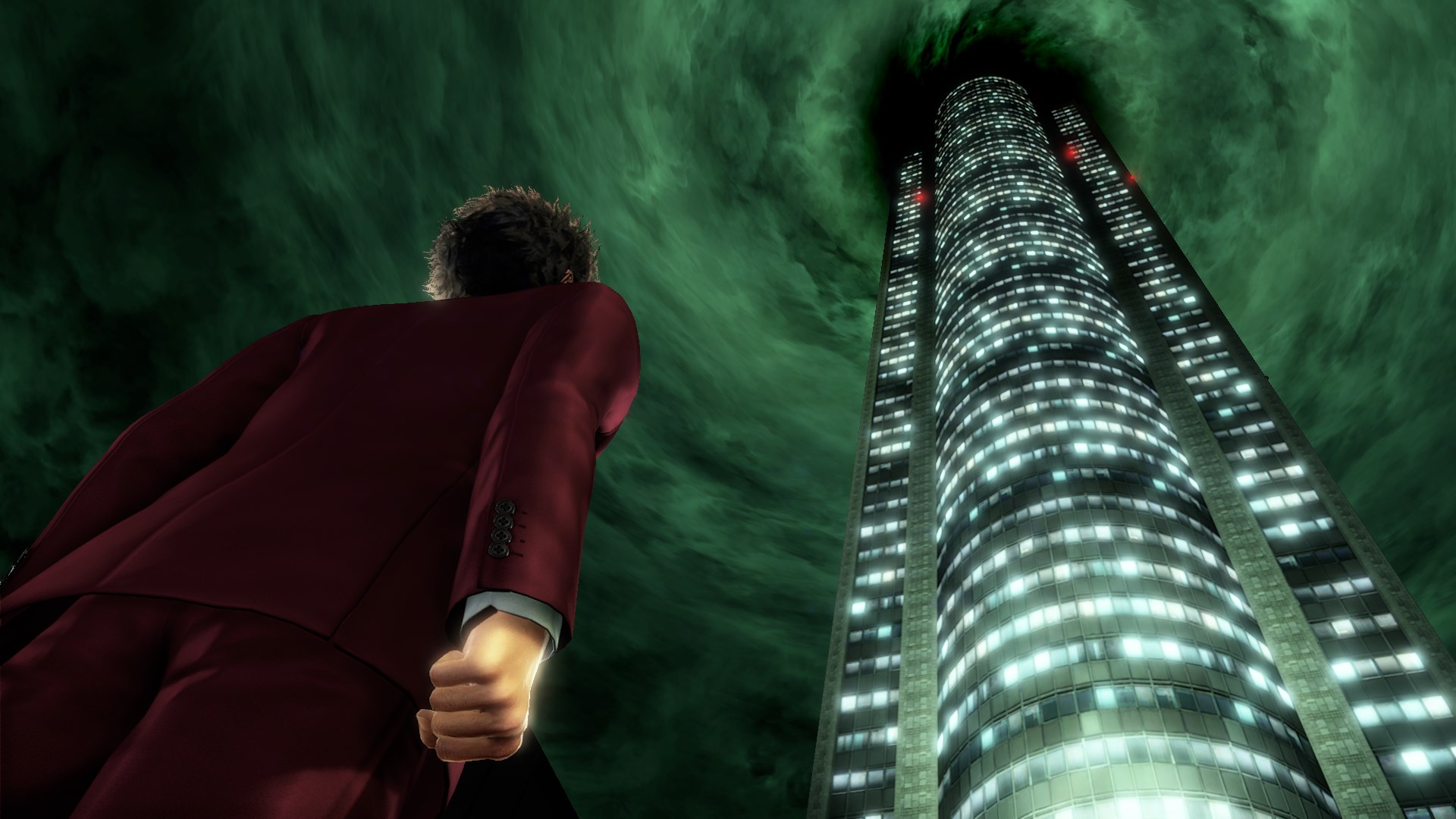Yakuza Like A Dragon
I dread writing this review, not because it was a bad experience. Far from it, I have a lot on my mind going into this with quite a bit to say. Yakuza Like A Dragon was a game that wasn’t even a blip on my radar until fairly recently, largely due to my recent obsession with Daytona USA. The founder of RGG Studio, Toshihiro Nagoshi, helped create a legendary arcade series. Yet, his legacy is known for the Like A Dragon series, formerly known as Yakuza in the United States. Like A Dragon 7 was the last game to use the Yakuza name and the first to use the original name, Ryu Ga Gotoku in English.
Naturally, this was done to usher in a new era of the RGG series, but also to distance itself from Yakuza, much like the plot of Like A Dragon. For consistency's sake, when I say Like A Dragon, I’ll refer to this game and when I say to Yakuza I’ll mean the series as a whole up until this point. This game has been out for a while, almost three years now, so this review will be very spoiler-heavy if only to help with not putting a filter over my thoughts.
The last time I discussed Like A Dragon, I had finished up the first four chapters where Ichiban wakes up in Ijincho, Yokohama, without a penny to his name after surviving a gunshot wound from Masumi Arakawa, the patriarch of the Arakawa Family. During his stay in Yokohama, he learns how to crawl back on his feet from rock bottom, befriending the neighbors including the homeless medic, Nanba. After saving his life by treating his gunshot wound, Nanba and Ichiban are joined by Adachi, a former detective who was dishonorably discharged for seeking justice.
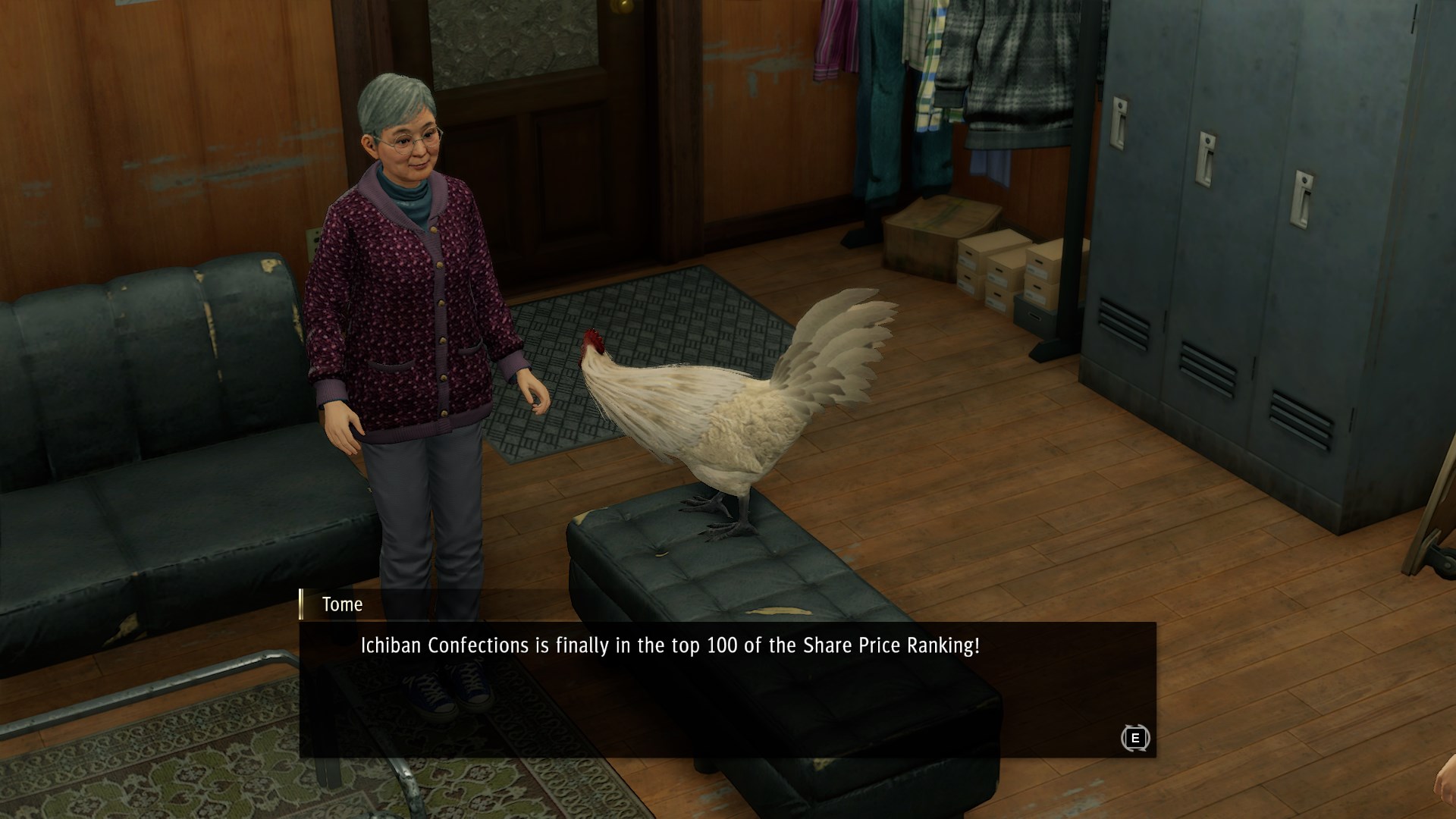
Together, the three of them seek to find a new “lease on life,” by going to a job agency and working as staff at a residential soapland. When the owner of the soapland is murdered, this sets off the events of the second half of the story. Within Yokohama are three ruling factions, the Seiryu Clan, Yokohama Liumeng, and Geomijul.
These make up the Ijin Three, which isn’t so much an alliance but a mutual understanding that this wall is the only thing preventing outsiders from spreading influence. However, with the presence of the extremist group, Bleach Japan, it was the perfect storm to infiltrate Yokohama while doing it within legal measures. While this is all going on, everyone questions Ichiban’s purpose in all of this as he has no ties to anyone in Ijincho or Yokohama.
Ichiban Kasuga joins the ranks of the many Yakuza protagonists who are far too altruistic for their own good. Ichiban’s only reason for sticking around is to help those who had helped him. The soapland owner, Nonomiya, took Ichiban in for a job even though he was rough on him as well as his other employees. Being murdered in cold blood would be something most wouldn’t care about at first, Saeko included, but when her sister is finally freed from the coils of the corrupt yakuza, she realizes that not everyone has ulterior motives.
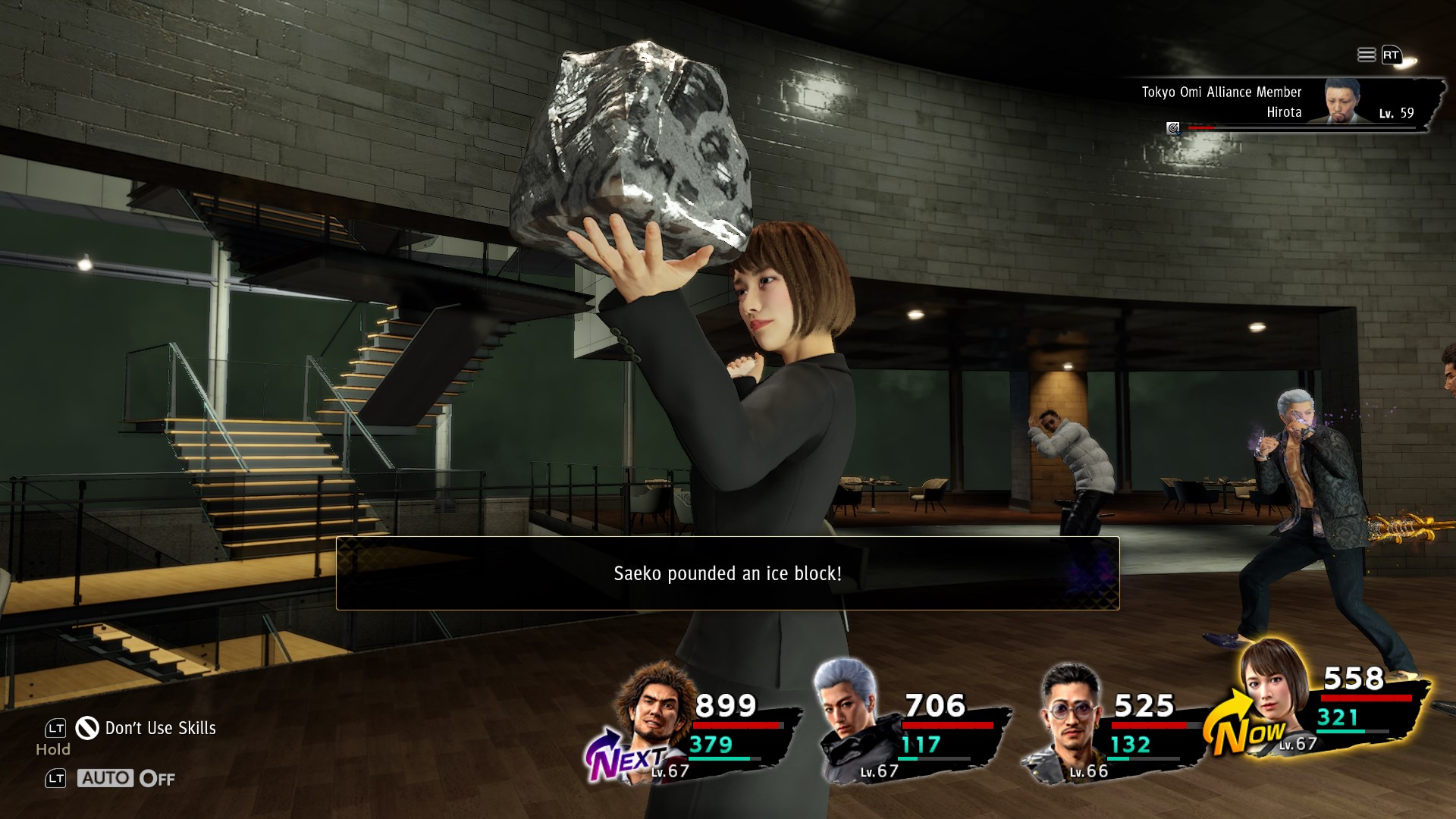
Most of the allies Kasuga befriends, whether they join his “inner circle” or as a close confidant, is thanks to his infectious personality. There are countless times when people mistake his kindness for him being a doormat, as he does have a breaking point when enough is enough. He can handle those higher than him looking down on him, as was the case during his reunion with Arakawa’s son, Masato. Now under the name Ryo Aoki, as governor of Tokyo, Aoki is revealed to be the puppet master pulling the strings.
Before Kasuga did time, Kasuga was taking Masato out to a hostess bar for his birthday. Masato’s girlfriend was revealed to be cheating on him with someone else. Even waving cash around wasn’t enough to completely win her over as he overheard a conversation she had saying “Power is everything and money is worthless without it.” Said person she cheats on him with turns out to be the police commissioner and later on that night, Masato is forced to murder a rival yakuza out of self-defense.
It’s revealed here that Kasuga wasn’t the fall guy for his captain, Jo Sawashiro, but rather for Masato himself. After these events, Masato moved to the States, changed his name, and went through surgery to regain the ability to walk. Masumi would be the acting captain of the Omi Alliance and would then betray Ichiban as he got out of prison. Or so it would seem.
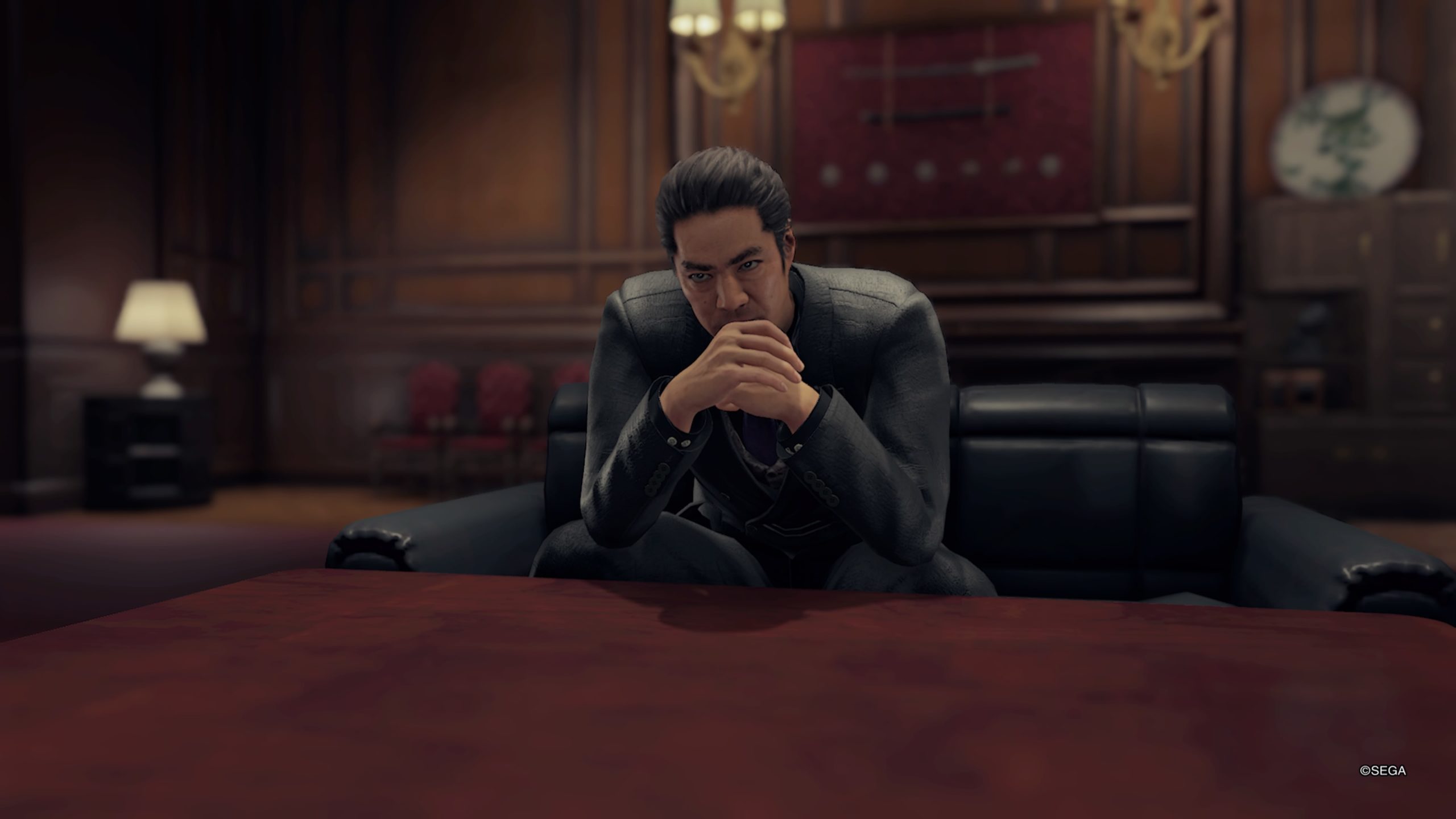
Yakuza Like A Dragon is a classic turn-based RPG and I never got a chance to talk about the gameplay in detail up until this point. The best comparison I can give it is Persona 5 and it’s not just because about three-quarters of the cast also voiced characters in that game. There are enemy weaknesses that can be exploited based on a party member’s job class. The job agency isn’t just used for plot purposes, it’s also used to introduce this very same “job” system.
Jobs like being a Foreman, Chef, Host, or Enforcer are all based on classes in traditional RPGs. Support, casters, tanks, and fighters are all based on “real-life” jobs yet taken to extreme measures. If you’re aware that an enemy is weak against ice? Throw a giant bucket of ice in their face for super-effective damage. Wanna get things spicy for the enemies susceptible to fire damage? Take out the candles for a bit of play that your guests will definitely not forget. There are jobs exclusive to gender and while there are some overlap, it’s important to have at least one woman in your party.
Fortunately, early on in the game at around Chapter 5, Ichiban unlocks the management simulator mini-game. Completing the first shareholder’s meeting will persuade Eri, the woman who Ichiban helps get out of the red, to join his party. This is the only missable party member but it’s also the only other woman who joins Kasuga’s party, which helps Saeko fit into more roles as two is better than one. I also recommend taking a look into the simulator minigame as that will be Kasuga's main source of income until the end game and post-game. Eri's default style as an Office Clerk serves as an introduction to another party member who joins a bit later in terms of using Blade damage. Everyone's a tough guy until they have a box of thumbtacks thrown at their feet.
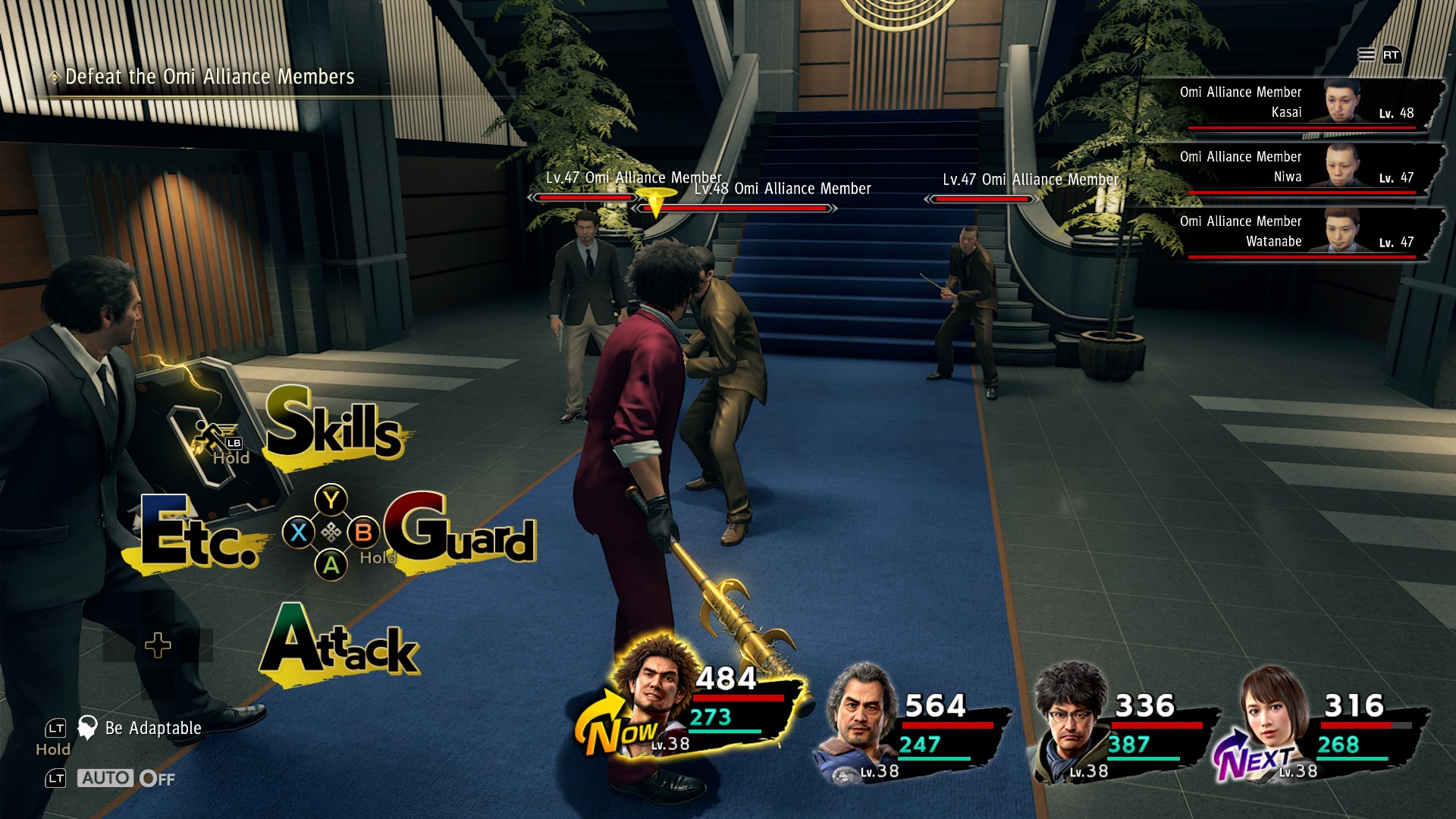
That's the beauty of this game and its combat as with the exception of three people in the party, these are all everyday people with a purpose and motive to get themselves in the thick of trouble. Ichiban has affected the lives of those who surround him and they continue to offer his support in return, slowly becoming a "hero to the people." Deep inside, however, like everyone else in the party, Ichiban is someone without a place to call home. The remnants of the Korean mafia became refugees hiding in the Geomijul, the same could be said for the Snake Flower Triad from the earlier Yakuza games with Liumeng. Everyone finds purpose within each other as a family. A dysfunctional family, but a trusted one nonetheless.
This is also reflected in the bonds that Ichiban can build with his party members, again, much like Persona, although on a smaller scale. Answers and appeasing friends don't matter as much as saying what the player feels is the right thing to say. Depending on what Ichiban replies with, different aspects of his personality will flourish. Personality in this game affects several skills from Ichiban's "Hero" job, making it a hidden stat that can be improved upon through "out of combat" measures. Playing the role of "Part-Time Hero" is one of the better ways to do so, but also going to a vocational school to brush up on Ichiban's studies, collecting cans, and other aspects of selflessness.
Unfortunately, the gameplay isn't perfect. Enemies move around the battle arena, which isn't too bad as allies also tend to move towards a specific path. The AI pathing will often work against the player as they attempt to line up precious AOE skills to eliminate as many enemies as possible. There was nothing more frustrating than lining up a perfect swing of the bat only for an enemy to wander elsewhere, thus causing me to miss my target and waste precious MP. Fortunately, it seems RGG Studio had learned from this in Infinite Wealth, the game's sequel. In the game's sequel, the character will be able to move around a short distance before taking an action, similar to the gameplay found in the Neptunia series among others.
Comparing the current gameplay trailers to the original gameplay in Like A Dragon, RGG Studio is sticking to an "if it's not broke don't fix it" goal and it's for the best. I can't help but feel slightly disappointed for Kasgua returning to the whole "rock bottom" shtick after getting his well-earned happy ending. Even his "happy ending" was a fairly bittersweet one as it's assumed that the bottom feeders get away free while others simply perish for being used. There are several times when the game pulls a "survival of the fittest" motif and flips it on its head as it serves as the bad guy's comeuppance thanks to Kasuga and his friends. At least he's in Hawaii instead of the "slums of Ijincho."
This leads to the "elephant" in the game, former series protagonist Kiryu Kazuma. For reasons explained in Yakuza 6, Kazuma as the public knows him is "dead." For a man as powerful as Tokyo's Batman, however, he never fully disappears. He returns sort of like a mentor to Ichiban, whose path ominously mirrors his.
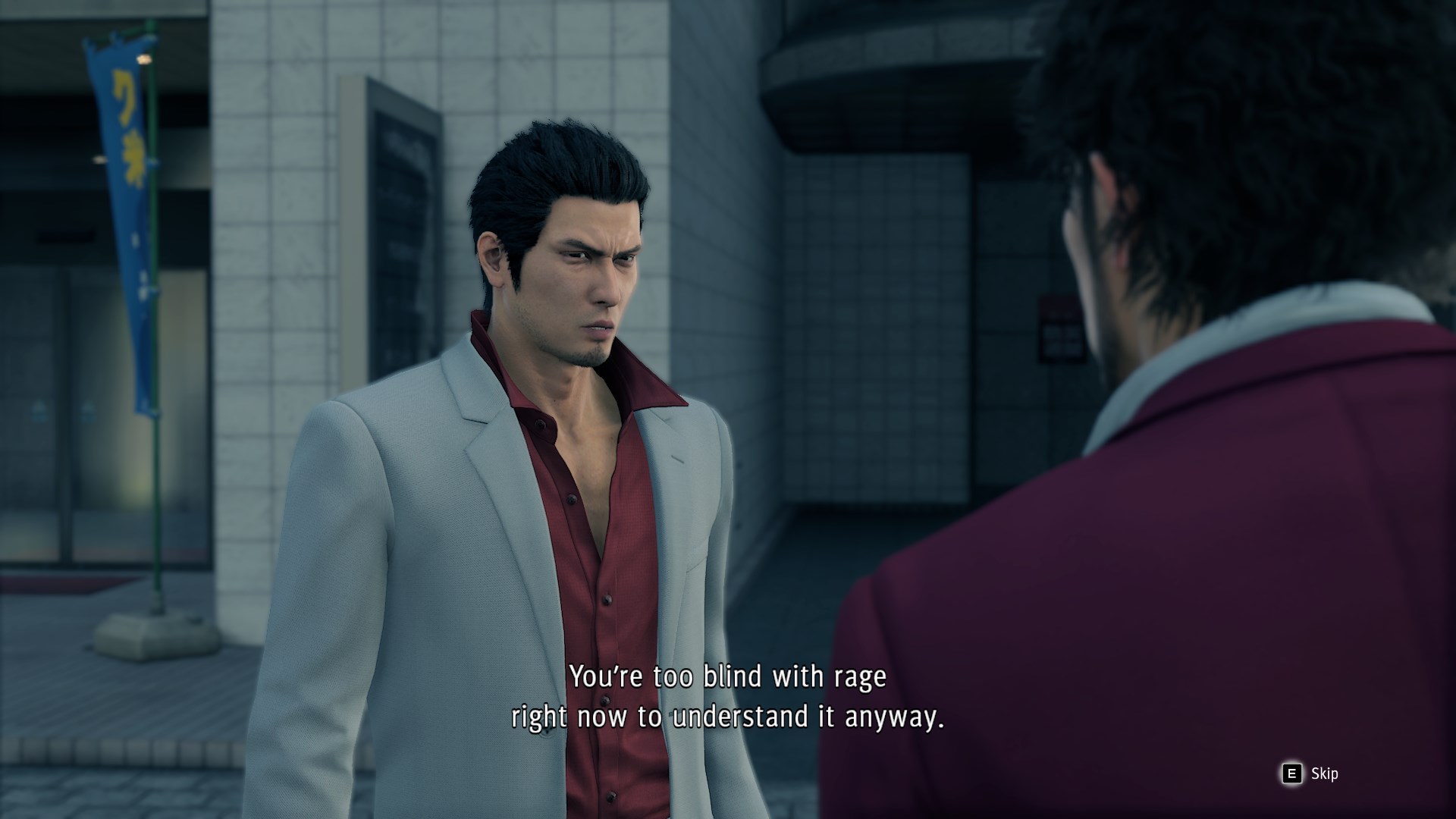
I'm curious to see what role he plays in Infinite Wealth as according to the gameplay trailer players will play as him as well as Ichiban in certain points of the game. Looking at the character portraits, it seems he joins some of Ichiban's former allies and they will eventually meet up. I hope that the series continues to focus on Ichiban however as he's a refreshing protagonist that only had ties to the yakuza out of a place of familiarity and belonging.
Yakuza Like A Dragon is a rare game in a long running franchise that gives something for veterans of the series, newcomers as a perfect gateway to the series, and returning players like myself who enjoys seeing the new changes to the series. With both Gaiden and Infinite Wealth around the corner, now is the perfect time to play what I regrettably missed out on three years ago.
Yakuza Like A Dragon is available on PC, PlayStation 4, PlayStation 5, Xbox Series X/S, and Xbox One.

